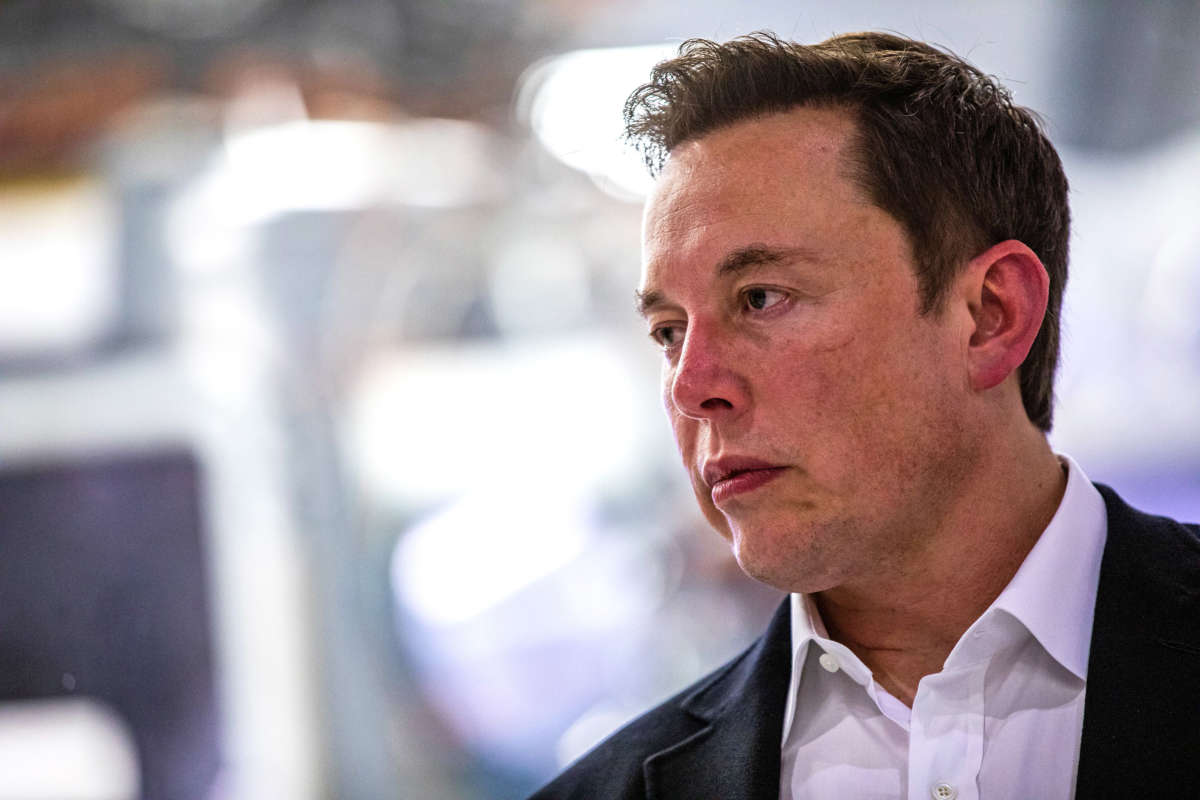Did you know that Truthout is a nonprofit and independently funded by readers like you? If you value what we do, please support our work with a donation.
Elon Musk’s ultimatum this week to the remainder of Twitter’s workforce — to commit to a “hardcore” work culture with “long hours at high intensity” or leave — has backfired spectacularly as hundreds of workers have opted out and are resigning, leaving the company with a barebones staff that may not have the capacity to keep the website afloat.
The roughly 2,000 to 3,000 workers left at the company earlier this week had until 5 pm on Thursday to click “yes” on a form committing to the “hardcore” culture — what Musk calls “Twitter 2.0” — or receive three months severance. The Verge and The New York Times have reported that hundreds of resignations started rolling in before the deadline; Fortune reported that about 75 percent of the remaining employees opted out of “Twitter 2.0,” with most of the 25 percent remaining on work visas, with little choice but to stay.
Musk had already laid off roughly half of the 7,500 workers at the company shortly after he took the helm and has spent recent days firing workers who have criticized him on workplace messaging platform Slack or on Twitter, meaning that there could be only hundreds of employees left at the company.
Employees and former employees say that Musk has created an extremely dire situation for the website, essentially manufacturing a ticking time bomb counting down the days — or hours — until critical functions stop working. The Washington Post reported after the deadline had passed that many of the teams on critical systems — “like ‘serving tweets’ levels of critical,” as a former employee said — no longer have any staff.
“There is no longer even a skeleton crew manning the system,” the employee said. “It will continue to coast until it runs into something, and then it will stop.”
“Every mistake in code and operations is now deadly,” added a former engineer. Any employees who have remained “are going to be overwhelmed, overworked, and because of that more likely to make mistakes.”
That Musk appears to be intent on creating a toxic work environment is consistent with his management style at his other companies. Corporate workers at Tesla, for instance, have reported a “cult-like” culture of worshiping the multibillionaire among the staff, while workers at Tesla’s California warehouse have sued several times over what they say is a heinous culture of rampant racism and harassment on the warehouse floor.
If only we had taxed the rich maybe none of this would have happened
— Alexandria Ocasio-Cortez (@AOC) November 18, 2022
Many of the teams working on Twitter’s content moderation have been gutted as well, employees say. The majority of employees who worked to mitigate misinformation, spam and impersonation are gone, according to The Washington Post, and roughly half of the trust and safety policy team has resigned.
Major advertisers had already put ad campaigns on the website on hold, with new features and plans announced by Musk giving ad firms representing major brands pause. Before he took over, Musk pledged to revamp the platform’s content moderation in the name of supposed “free speech,” which led to a rise of hate speech and racial slurs on the website.
Recent weeks have seen an incredibly haphazard rollout of Twitter Blue, a paid subscription that, for some indeterminate amount of time, allowed users to buy a blue checkmark indicating that their account was “verified” — a designation previously only allowed to prominent political figures, journalists, and other figures that had verified their identity.
This feature in particular has raised concerns not only among advertisers — the top revenue stream for the website — but also Congress. On Thursday, a group of six Democratic senators, led by Sen. Richard Blumenthal (Connecticut), sent a letter to the Federal Trade Commission (FTC) expressing concerns about the platform’s “serious, willful disregard for the safety and security of its users.” The letter was signed by prominent lawmakers like Sen. Elizabeth Warren (Massachusetts).
The lawmakers are urging the FTC to investigate the company for potential breaches of the FTC’s consent decree prohibiting misrepresentation and mandating information security on the platform, as well as for potential violations of consumer protection laws.
Musk “has taken alarming steps that have undermined the integrity and safety of the platform, and announced new features despite clear warnings those changes would be abused for fraud, scams, and dangerous impersonation,” the lawmakers wrote. “Twitter knew in advance that there was high likelihood the Twitter Blue product could be used for fraud, and still it took no action to prevent consumers from being harmed.”
Trump is silencing political dissent. We appeal for your support.
Progressive nonprofits are the latest target caught in Trump’s crosshairs. With the aim of eliminating political opposition, Trump and his sycophants are working to curb government funding, constrain private foundations, and even cut tax-exempt status from organizations he dislikes.
We’re concerned, because Truthout is not immune to such bad-faith attacks.
We can only resist Trump’s attacks by cultivating a strong base of support. The right-wing mediasphere is funded comfortably by billionaire owners and venture capitalist philanthropists. At Truthout, we have you.
Our fundraising campaign is over, but we fell a bit short and still need your help. Please take a meaningful action in the fight against authoritarianism: make a one-time or monthly donation to Truthout. If you have the means, please dig deep.
